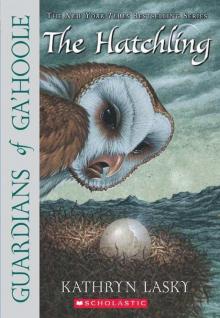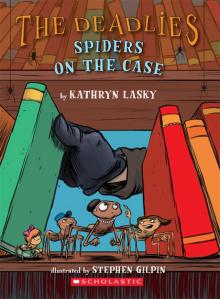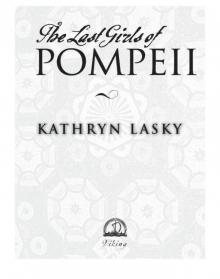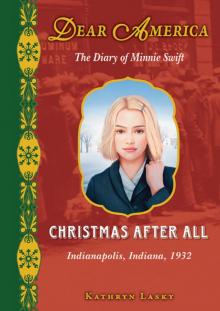- Home
- Kathryn Lasky
A Journey to the New World
A Journey to the New World Read online
DEAR AMERICA
The Diary of
Remember Patience Whipple
A Journey to the
New World
KATHRYN LASKY
To today’s young immigrants,
pilgrims all
Contents
Title Page
Dedication
Mayflower 1620
October 1, 1620. Morning Mayflower 1150 miles sailed
October 2, 1620 Mayflower
October 2, 1620. Afternoon Mayflower
October 3, 1620 Mayflower
October 4, 1620 Mayflower 1300 miles sailed
October 5, 1620 Mayflower
October 7, 1620 Mayflower 1420 miles sailed
October 9, 1620 Mayflower
October 10, 1620 Mayflower 1560 miles sailed
October 12, 1620 Mayflower 1790 miles sailed
October 13, 1620 Mayflower 1805 miles sailed
October 14, 1620 Mayflower 1825 miles sailed
October 16, 1620 Mayflower 1840 miles sailed
October 17, 1620 Mayflower 1890 miles sailed
October 18, 1620 Mayflower 1900 miles sailed
October 21, 1620 Mayflower
October 23, 1620 Mayflower 2160 miles sailed
October 24, 1620 Mayflower 2210 miles sailed
October 27, 1620 Mayflower 2340 miles sailed
October 28, 1620 Mayflower 2400 miles sailed
October 30, 1620 Mayflower 2530 miles sailed
October 31, 1620 Mayflower
November 4, 1620 Mayflower
November 5, 1620 Mayflower
November 6, 1620 Mayflower 2800 miles sailed
November 6, 1620. Written at dawn Mayflower 2835 miles sailed
November 7, 1620 Mayflower 2850 miles sailed
November 8, 1620 Mayflower 2900 miles sailed
November 9, 1620 Mayflower 2950 miles sailed
The New World
November 9, 1620. Evening Cape Cod Bay
November 10, 1620 Cape Cod Bay
November 11, 1620 Cape Cod Harbor
November 12, 1620 Cape Cod Harbor
November 13, 1620 On the beach, Cape Cod Bay
November 14, 1620 Cape Cod Harbor
November 15, 1620 Cape Cod Harbor
November 16, 1620 Cape Cod Harbor
November 18, 1620 Cape Cod Harbor
November 21, 1620 Cape Cod Harbor
November 22, 1620 Cape Cod Harbor
November 23, 1620 Cape Cod Harbor
November 24, 1620 Cape Cod Harbor
November 26, 1620 Cape Cod Harbor
November 28, 1620 Cape Cod Harbor
November 30, 1620 Cape Cod Harbor
December 3, 1620 Cape Cod Harbor
December 5, 1620 Cape Cod Harbor
December 6, 1620 Cape Cod Harbor
December 7, 1620 Cape Cod Harbor
December 8, 1620. Midnight Cape Cod Harbor
December 10, 1620 Cape Cod Harbor
December 13, 1620 Cape Cod Harbor
December 15, 1620 Cape Cod Harbor
Plimoth
December 16, 1620 Plimoth Harbor
December 18, 1620 Plimoth Harbor
December 18, 1620. Afternoon Plimoth Harbor
December 21, 1620 Plimoth Harbor
December 23, 1620 Plimoth Harbor
December 24, 1620 Plimoth Harbor
December 25, 1620 Plimoth Harbor
December 28, 1620 Plimoth Harbor
December 29, 1620 Plimoth Harbor
December 30, 1620 Plimoth Harbor
January 1, 1621 Plimoth Harbor
January 2, 1621 Plimoth Harbor
January 3, 1621 Plimoth Harbor
January 4, 1621 Plimoth Harbor
January 5, 1621 Plimoth Harbor
January 8, 1621 Plimoth Harbor
January 9, 1621 Plimoth Harbor
January 11, 1621 Plimoth Harbor
January 12, 1621 Plimoth Harbor
January 13, 1621 Plimoth Harbor
January 15, 1621 Plimoth Harbor
January 29, 1621 Plimoth Harbor
February 4, 1621 Plimoth Harbor
February 5, 1621 Plimoth Harbor
February 8, 1621 Plimoth Harbor
February 9, 1621 Plimoth Harbor
February 15, 1621 Plimoth Settlement
February 16, 1621 Plimoth Settlement
February 17, 1621 Plimoth Settlement
February 18, 1621 Plimoth Settlement
February 25, 1621 Plimoth Settlement
March 3, 1621 Plimoth Settlement
March 7, 1621 Plimoth Settlement
March 9, 1621 Plimoth Settlement
March 10, 1621 Plimoth Settlement
March 11, 1621 Plimoth Settlement
March 12, 1621 Plimoth Settlement
March 13, 1221 Plimoth Settlement
March 16, 1621 Plimoth Settlement
March 23, 1621 Plimoth Settlement
March 25, 1621 Plimoth Settlement
March 27, 1621 Plimoth Settlement
April 1, 1621 Plimoth Settlement
April 2, 1621 Plimoth Settlement
April 3, 1621 Plimoth Settlement
April 4, 1621 Plimoth Settlement
April 5, 1621 Plimoth Settlement
June 5, 1621 Plimoth Settlement
June 6, 1621 Plimoth Settlement
June 7, 1621 Plimoth Settlement
June 15, 1621 Plimoth Settlement
June 17, 1621 Plimoth Settlement
June 30, 1621 Plimoth Settlement
July 5, 1621 Plimoth Settlement
July 26, 1621 Plimoth Settlement
August 1, 1621 Plimoth Settlement
August 2, 1621 Plimoth Settlement
August 5, 1621 Plimoth Settlement
August 9, 1621 Plimoth Settlement
August 15, 1621 Plimoth Settlement
August 20, 1621 Plimoth Settlement
August 25, 1621 Plimoth Settlement
August 26, 1621 Plimoth Settlement
September 1, 1621 Plimoth Settlement
September 4, 1621 Plimoth Settlement
September 6, 1621 Plimoth Settlement
September 16, 1621 Plimoth Settlement
September 20, 1621 Plimoth Settlement
September 21, 1621 Plimoth Settlement
September 23, 1621 Plimoth Settlement
October 5, 1621 Plimoth Settlement
October 10, 1621 Plimoth Settlement
October 11, 1621 Plimoth Settlement
October 13, 1621 Plimoth Settlement
October 14, 1621 Plimoth Settlement
October 15, 1621 Plimoth Settlement
October 17, 1621 Plimoth Settlement
November 6, 1621 Plimoth Settlement
November 7, 1621 Plimoth Settlement
November 8, 1621 Plimoth Settlement
November 10, 1621 Plimoth Settlement
Epilogue
Life in America in 1620
Historical Note
About the Author
Acknowledgments
Other books in the Dear America series
Copyright
Mayflower
1620
October 1, 1620. Morning
Mayflower
1150 miles sailed
“Mem,” that’s what I answer to. ’Tis short for Remember. My full name being Remember Patience Whipple. Patience was to be my first name, but Mam, my mother, decided it was wrong. I was squally and impatient. They wanted, however, to remember my mother’s dear sister who had just passed on. So they slipped the Patience in-between. For some it is a good first name, for me it is better as an in-between name. Mam says I am more patient than I once was
, but I still have a far way to go. I’m twelve years old. Maybe by the time I am full grown, say fifteen, I shall be patient.
We are journeying to the New World. It is the Mayflower that be getting us there, slowly. She measures ninety feet in length and twenty-five feet in breadth at her broadest point. She is a strong ship but a plodding one, as she creaks her way across this vast gray Atlantic sea.
The reason for our journey is our religion. You see, we are not the Pope’s people nor the King’s really, but God’s people. We are Saints of the Holy Discipline. “Saints” — for short. That is what all of us English who went to Holland are called. And if we go to this New World, free from old King James and all the fancy church rituals that are not to our way, we can worship as we want. You see, we believe that the church is in our heart and not in a building. So ’tis our hearts that lead us.
But now it is my stomach that is revolting. For days it has been topsy-turvy with me, and the sailing master, Master Jones, says we only have had gales, no real storms. Oh dear, I am feeling pukish. Quissy I call it. I don’t want to cast. I don’t want to cast. That is all I can think of— vomiting. I must stop writing, dear diary. That sounds so stupid, “dear diary.” I must find you a proper name. But I must lay my pen down before I puke all over you….
October 2, 1620
Mayflower
Storm-force winds; too dangerous to go topside to seek out Master Jones for our progress. ’Tis hard to imagine what this New World shall be like. I am used to towns with buildings and winding streets. And people bustling to market and talking Dutch, or English if they be one of us. But the New World is empty of all that. There are no buildings or streets and the only people are feathered men and feathered women and feathered babies, I suppose, who do paint their faces ’tis said, and live in most uncommon shelters.
October 2, 1620. Afternoon
Mayflower
They say we be heading for northern Virginia, near the Hudson River. The King, King James of England, granted the land. Then the merchants formed the company for a plantation where we shall grow things to send back to England to sell.
Too sick to write.
I hate John Billington.
October 3, 1620
Mayflower
Storm still blows.
God forgive my harsh thoughts on John Billington. God Bless John Billington even though I cannot bear him. His brother Francis might be worse.
Mam’s got scours, as do so many. There is something in the water or the food that just turns the bowels to liquid. Father took Mam’s petticoat topside. Came back drenched but petticoat clean with saltwater scrubbing. Please, dear Lord, I do not want to get the scours and it is not for my vanity … ’tis for my petticoats. I be wearing only two now instead of the usual three, as we had to triple-diaper up my baby sister Blessing when she did get the scours. I’d rather cast than get scours. What a horrid choice. One end or ‘tother! Oh, dear, the very thought of it does make my innards shiver. I cast now …!
P.S. Master and Mistress Billington are in the course of a terrible fight. She can screech as loud as the wind. And him with his curses! I don’t even know what the fight is about. It does not help my poor knotted guts.
October 4, 1620
Mayflower
1300 miles sailed
Will Butten, Deacon Fuller’s servant, is a clever lad. All the littlest children were carrying on something fierce. Wailing as loud as the storm. He took a pen nib and painted faces on his fingers and then again where his thumb joins his hand. Each face had a name and then he began to tell a story by wiggling his fingers. Soon they all stopped crying. Hummy, my friend, and I think he is quite dear. He also explained to me how the sailing master measures the latitude by peering through his cross-staff at the sun. When the storms cease and we can go topside again, Will promises to show Hummy and me a clever trick for measuring Mayflower’s speed.
October 5, 1620
Mayflower
Wind increases. We must take in our sail and drift. I still be feeling poorly.
They call our Mayflower a “sweet ship” because she was in the Portuguese wine trade and has not for a long time carried smelly things like fish and tar and turpentine. But she not be so sweet now; not with everyone so close and sick, sleeping below the deck, and with no privies and only buckets. She smells very bad. To think how excited I was when we first boarded this ship. How cozy I found it all, the nooks and crannies. But we are simply too many people, crushed up against one another every hour of the day. The horrible smells, the snores of some of the men, the squalls of the babies. If one wants to change a petticoat with any modesty one must practically crawl into a barrel. The men are less modest than the women. Often they pull off their shirts and I see their backs and stomachs. I try to look away, but sometimes it is impossible and I have discovered that some men have hair on their backs! Is that not peculiar?
How I wish they would let me go topside for a breath of air. It has been days since I have seen a drop of sunlight. But it is forbidden for the children to go onto the upper deck what with the pitching and rolling and the waves thrashing and crashing. And if we didn’t fall over, one of the sailors might throw us over. They hate us Saints and they make fun of our sickness. They call us “puke-stockings.” They are as rude as the Billington boys. By the way, I am sure Francis Billington snitched one of my biscuits.
October 7, 1620
Mayflower
1420 miles sailed
CAST
SPEW
SPOUT
PUKE
Hummy Sawyer and I are making a list of all the words for these wrathful contortions of our innards. It makes us feel better. And speaking of words I must think of a name for you, dear …? But I feel so poorly now ’tis all I can do to write.
October 9, 1620
Mayflower
The gales have pushed us back twenty miles! We are practically back to where we were yesterday! I am most depressed. This wind is indeed like a big fist in our face. Father says the ship cannot go against it when the wind be square on! Agony!
October 10, 1620
Mayflower
1560 miles sailed
I write now with trembling hand. A most horrendous thing has happened. There was what they call a rogue wave that rose out of the storm seas. It felt as if our poor little ship was flying for endless seconds and then there was a terrible crack. Yes, indeed we have cracked the main beam! It surely buckled and now the deck above us is like a sieve and we are all drenched. All the men came together. All so grim-faced. And then ’twas my own father who perhaps has solved the problem, for he remembered the immense iron screw we brought from Holland for building our village in the New World.
If it does not work, our ship will founder and sink. I try to imagine drowning in this snarling sea. If indeed it comes to that, if the ship goes down, I would hope I would be drowned before a shark would eat me. Sharks are a very bad sign when following a ship. I saw some one day when it was calmer and I was still sick, casting over the side. They probably have my scent now. They’ll come right for me. I must not have these dark thoughts. I must have faith in God and man. These men, my father, the carpenter, the sailing master, Master Bradford, Elder Brewster, they will figure out something. We all pray that ’tis possible to raise the broken beam back into place and then with a post under it, secure it once it is mended.
October 12, 1620
Mayflower
1790 miles sailed
It has worked. God’s providence has come down on our little ship. The main beam is raised and repaired! We are blessed. Last evening we assembled for prayers of thanks. Soon after that the winds abated and the rigging became quiet for the first time in nearly two weeks. We could hear to think, hear to pray, hear to listen to each other. And Hummy and I chattered all through the night.
Hummy and I are going to put up a real fuss to sleep in the shallop now. The shallop is a small boat to be used for exploring the coast when we finally get there. It is pe
rhaps twenty feet long and of shallow draft and is stowed in the tween decks. We need just a little place for ourselves. It would be a change of scenery. I am so sick of staring at those pegs and those planks where I have been sleeping and I am so tired of hearing the snores of Master and Mistress Billington and seeing his hairy back. I would imagine that the smells would not be better but maybe they would at least be different smells! Will Butten says that the best place is where he often goes — the longboat on deck. But I doubt Mam would let me go out there in the night air. The vapors you know. She is most fearful of night air, especially when the wind comes from the south.

 Felix Takes the Stage
Felix Takes the Stage Lucy
Lucy Lone Wolf
Lone Wolf Broken Song
Broken Song The Shattering
The Shattering The Crossing
The Crossing May
May Chasing Orion
Chasing Orion Star Rise
Star Rise The River of Wind
The River of Wind More Than Magic
More Than Magic Born to Rule
Born to Rule The Hatchling
The Hatchling The Rescue
The Rescue Marie Antoinette: Princess of Versailles, Austria - France, 1769
Marie Antoinette: Princess of Versailles, Austria - France, 1769 The War of the Ember
The War of the Ember Spiders on the Case
Spiders on the Case To Be a King
To Be a King The Last Girls of Pompeii
The Last Girls of Pompeii The Outcast
The Outcast Exile
Exile Night Witches
Night Witches Spirit Wolf
Spirit Wolf The Quest of the Cubs
The Quest of the Cubs Frost Wolf
Frost Wolf The Keepers of the Keys
The Keepers of the Keys The Extra
The Extra Blood Secret
Blood Secret Watch Wolf
Watch Wolf Blazing West, the Journal of Augustus Pelletier, the Lewis and Clark Expedition
Blazing West, the Journal of Augustus Pelletier, the Lewis and Clark Expedition The Capture
The Capture The Burning
The Burning The Journey
The Journey Unicorns? Get Real!
Unicorns? Get Real! The Escape
The Escape Star Wolf
Star Wolf Ashes
Ashes Wild Blood
Wild Blood Tangled in Time 2
Tangled in Time 2 The Siege
The Siege Hannah
Hannah Elizabeth
Elizabeth A Journey to the New World
A Journey to the New World Christmas After All
Christmas After All Mary Queen of Scots
Mary Queen of Scots